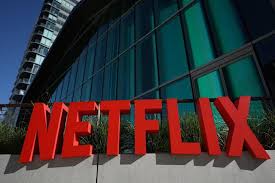In response to mounting political pressure from the far right, President Emmanuel Macron is seeking a fresh start for the remainder of his mandate. On Tuesday, Gabriel Attal was chosen as the youngest prime minister in French history.
The 34-year-old Attal gained popularity as the government’s spokesperson and minister of education, and he was voted the most popular minister in the departing administration. He is the first openly gay prime minister of France.
Elisabeth Borne, his predecessor, resigned on Monday in the wake of recent political unrest over an immigration law that increases the government’s authority to remove foreign nationals.
The nomination was made public by Macron’s office in a statement. In the next several days, he and Attal will appoint a new cabinet, while some important ministers are anticipated to stay in their positions.
Macron wrote on X, “I know I can count on your energy and your commitment,” in a message addressed to Attal. The president alluded to Attal reinvigorating the “spirit of 2017,” when Macron upended French politics and unexpectedly emerged as the youngest-ever president on a centrist, pro-business platform intended to revitalize one of the largest economies in the world.
Since then, the 46-year-old president’s positions on security and immigration have moved to the right, particularly in light of the rise in the political influence of her far-right opponent, Marine Le Pen, and her anti-immigrant, anti-Islam National Rally.
Macron is not allowed to serve a third straight term by the constitution; his second term expires in 2027. Additionally, political analysts speculated that Macron, a fervent advocate of European integration, wants his new administration to prepare for the June elections for the European Union when far-right, anti-EU populists are predicted to gain ground.
Attal faced criticism from both the left and the right due to his lack of experience, his upbringing in Paris, which was perceived as aloof from the struggles of those living in the countryside, and his allegiance to the president.
Former Socialist Party member Attal joined Macron’s newly formed political movement in 2016 and served as the government spokesperson from 2020 to 2022, gaining widespread recognition among the French public in that capacity. After that, he was designated minister of the budget. In July, he was promoted to the highly esteemed job of minister of education in the French government.
Attal swiftly declared that long robes would not be permitted in classrooms beginning with the September school year. He claimed that the mostly Muslim attire was a test of secularism in the classroom.
Along with this, he announced plans to test the use of uniforms in a few public schools in an attempt to shift the conversation away from clothing and school bullying.
Attal recently discussed his experiences with bullying in middle school, including homophobic harassment, on the national television network TF1.
The prime minister is chosen by the president and answerable to the parliament in the French political system. The prime minister is responsible for leading the government’s team of ministers and carrying out domestic policy, particularly economic initiatives.
The president is in charge of the nation’s armed forces and has significant authority over foreign policy and European affairs.
After Macron’s centrists lost their majority in parliament last year, the government was forced to use political tactics and extraordinary constitutional powers to enact legislation.
The difficult discussions surrounding the immigration bill and the contentious debate in parliament cast doubt on Borne’s government’s capacity to enact more significant laws. The bill was only passed by Macron’s centrist alliance after a compromise with the conservative Republican Party, which infuriated many in Macron’s coalition and forced a left-leaning government minister to resign.
Borne also had to deal with days of nationwide rioting when a teenage police shooting killed a man, as well as large-scale, frequently violent protests against a bill that would have raised the retirement age from 62 to 64.
















